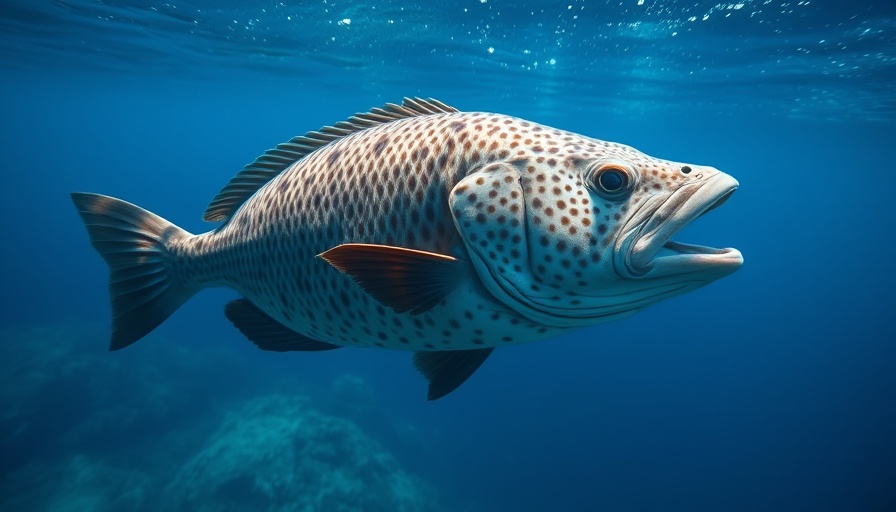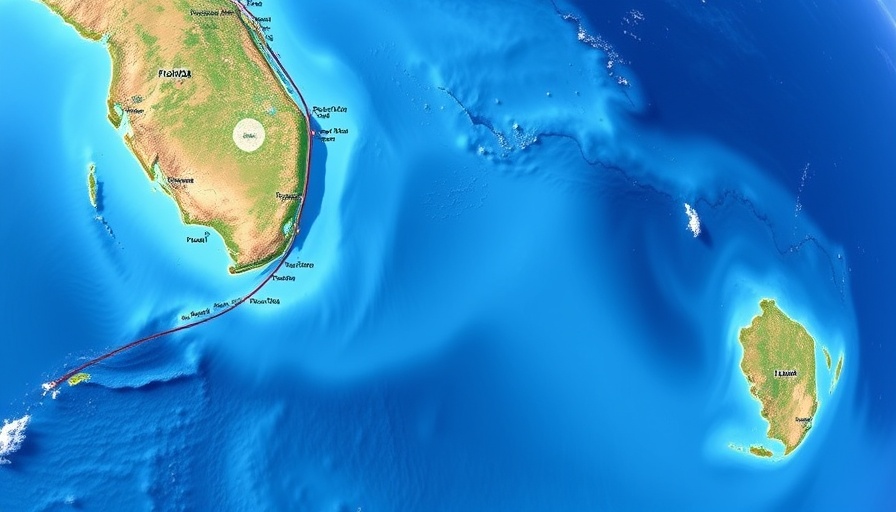
The Redemption of Two Diver Heroes
Imagine spending your day diving in the crystal-clear waters off Florida's coast, only to discover a shocking scene: a longline entangling 19 sharks and a goliath grouper, creatures that symbolize the beauty of marine ecosystems. This is the scenario that confronted John Moore Jr. and Tanner Mansell on August 10, 2020. Believing they were saving these majestic animals from illegal fishing, the duo cut them free, unknowingly leading themselves into the legal crosshairs of a system that would label them as criminals. Fast forward to last week when President Donald Trump pardoned them, an act that has reignited the conversation around environmental justice and the complexities of conservation efforts.
A Closer Look at the Legal Drama
After rescuing the sharks and the grouper, Moore and Mansell faced charges for theft. Their conviction shook their lives, rendering them felons and stripping them of fundamental rights. The prosecution’s determination to punish these environmentally conscious divers spurred backlash and debate around issues of government overreach and how laws can sometimes conflict with ethical actions meant to protect wildlife. Legal representatives for the men argued that their actions were rooted in conservation, a belief strongly supported by numerous advocates and environmentalists who view the case as regressive in a time when ecological awareness is critical.
The Role of Public Perception
The case has raised stark questions about our societal values. Should someone be prosecuted for attempting to save endangered species from illegal practices? The divisive opinions surrounding this incident reflect a broader national debate about environmental policies and enforcement. While some argue that Moore and Mansell should be punished for interfering with a fishery, opponents believe their intentions demonstrate a growing commitment to protecting marine life, showcasing a growing dissonance in our understanding of conservation efforts and legal frameworks.
Personal Reflections and Environmental Advocacy
After receiving his pardon, Mansell expressed gratitude, framing his actions as a heartfelt attempt to save marine wildlife rather than a criminal offense. This sentiment resonates deeply in our current climate, where a rising number of individuals are embodying the role of activists within their own spheres. As a shark environmentalist, his story highlights how necessary it is for laws to evolve alongside our growing understanding of environmental stewardship. Advocacy for wildlife protection, such as sharks—which are often misunderstood and portrayed as antagonists—needs to take precedence in our legal systems.
Moving Forward: Conservation at the Heart of Justice
While the pardons signal a form of redemption for Moore and Mansell, they also illustrate a path forward where conservationists and lawmakers can collaborate to create protective measures for marine inhabitants. We need laws that reflect a commitment to ecological integrity rather than punitive approaches toward those attempting to intervene for the greater good. As shark week approaches, it’s crucial that we highlight stories like Moore and Mansell’s to bolster awareness and inspire proactive measures in wildlife preservation.
Join the Conversation
The pardon of these divers opens the door for important discussions around conservation laws and how they can be shaped to reflect an ethical understanding of the environment. As we dive into shark week, remember that every individual can play a part in advocating for the protection of our ocean life. Let’s use this momentum to not only pardon wrongdoers but also to urge systemic changes that support the preservation of our beloved sharks and the delicate ecosystems they inhabit.
 Add Row
Add Row  Add
Add 




 Add Row
Add Row  Add
Add 

Write A Comment